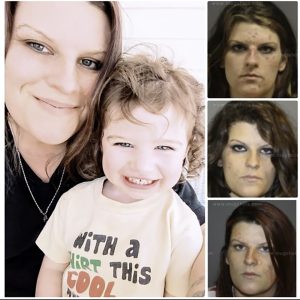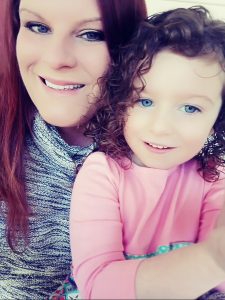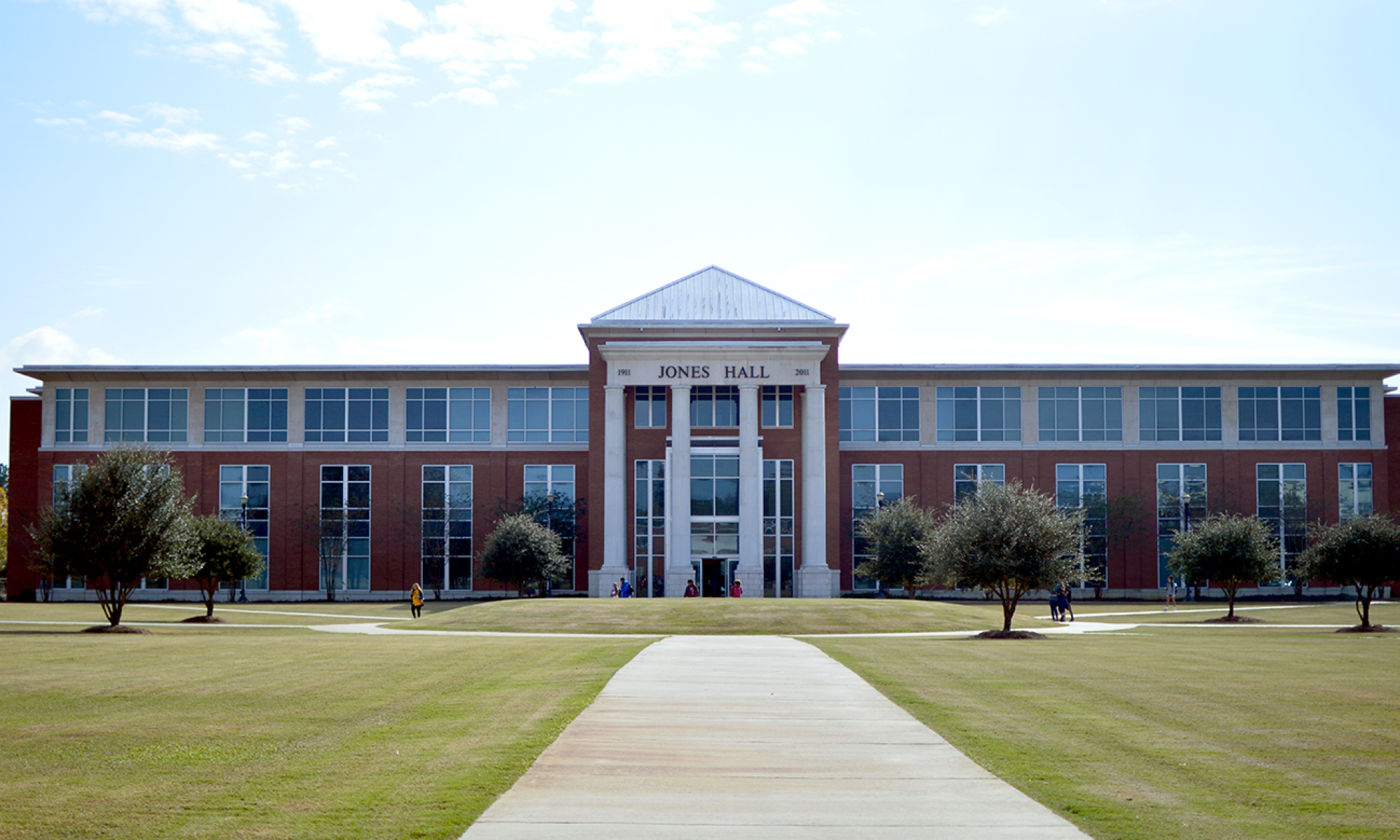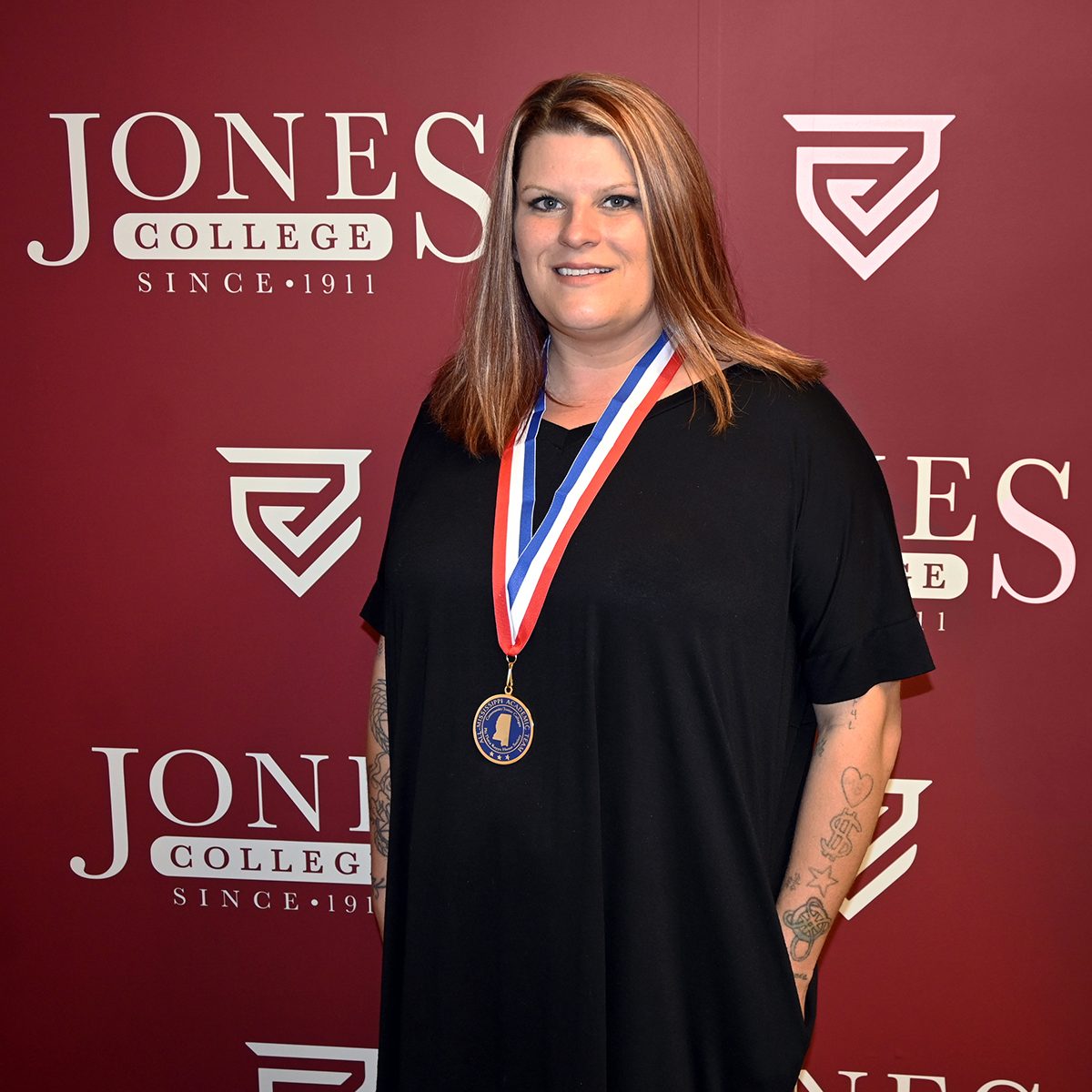Jones College 2022 graduate and Phi Theta Kappa Honor Society’s All-Mississippi Academic Second Team winner, Shayna “Shay” Clark of Petal will be the guest speaker for the High School Equivalency (HSE) graduation ceremony. Clark, who has an inspiring personal story of overcoming addiction, will share her encouraging words during the commencement ceremony for about 100 HSE graduates at the Whitehead Advanced Technology Center in Ellisville, on Thursday, July 21, at 7 p.m.
Clark struggled with addiction for 15 years, beginning when she was a teenager. From the time she was in second grade, her mother battled cancer, succumbing to it in Shay’s senior year.
“I was hurting, but I didn’t know how to say I was hurting,” she said. “It felt selfish because my mom was sick.” One day, she tried drugs. “Instantly, I felt relief,” she said. “When it wore off, I needed more and more, and it kind of escalated from there.”
That escalation included several times in jail and four times in prison. Despite her arrests, she continued to use drugs to numb the pain she felt she couldn’t handle then.
When her father first discovered her drug use, he tried to get her counseling, but she was a rebellious teen who refused to participate. Her addiction estranged her from her father, who died of a heart attack a few years later, which only increased her pain.
A graduate of Lamar Christian School, she was awarded a full tuition scholarship to MSU, but this was the fall that Hurricane Katrina hit. Two months after the natural disaster upended the lives of many, her life was upended as well when she went to prison for the first time at the age of 18. Through the years, she would get cleaned up for brief stints and enroll in college, thinking college “would fix” her. After attending class a few times, she wouldn’t return, always falling back into the vicious cycle of addiction.
All that changed the day she became involved in Drug Court. Specifically designed for people with substance abuse problems, these courts allow participants to enter long-term drug treatment while agreeing to court supervision. Members are expected to maintain recovery while working on lifestyle changes, with progress monitored by the court.

She said the Drug Court saw something in her that she couldn’t see in herself, and it was the first time that people had tried to help her. She was involved in the program for three years, and this is when she received counseling, something she’d never had before. She began the recovery process, and when she graduated from Drug Court, she enrolled the following semester at Jones, determined to get her degree.
“From the first phone call, everyone at Jones encouraged me and made it so doable,” she said.
When she started Jones, she was already working in the mental health field. After one year of sobriety, which is one of the pre-requisites for the job, she became a Peer Support Specialist at Clearview Recovery Center. She was the first person hired for the position at the center. Working at a treatment center helping people work on recovery helped her, too.
“Whenever I go through something hard, I remind myself that this is going to help someone,” she said. “It’s comforting to others when someone has gone through the same thing. That’s what’s so powerful about peer support because we’ve felt the same thing.”
In this role, the specialists share their personal stories with others through lectures and support groups. People in this role can receive certification through the Department of Mental Health. She later became a Clinical Assistant, and now she serves as a Case Manager for the Forrest/Perry County Drug Court. She plans on earning a bachelor’s in social work from USM, where she will start in the fall. She hopes to one day earn her masters as well.
While working in these roles, she attended Jones online classes, graduating this past May. Although not seeing her instructors for face-to-face classes, she said they all made an impact.
“My advisor, Stacy Ruth, was very helpful in navigating course schedules, and she was also my teacher a few times. I remember in one of our advisement appointments she called me ‘The Bomb Dot Com,’ which I remind my teenage step son of regularly when he gets embarrassed of me in public,” she said. “The amazing Eric Shows, PTK advisor who nominated me for the All-State Academic Award and believes in me and my story…
“Sarah Ishee, who helped my middle-aged mom-brain actually be able to retain history information (something I thought was impossible!!). Ms. (Missie) Meeks helped me to become a better writer, and Mr. (John) Burks helped me to better organize my thoughts and challenged my fears of speaking in public. Mrs. (Kathryn) Davis gave me interesting assignments in my social work classes that really made me think about things I have been through personally in a different light.
“I really could go on and on. Each and every teacher I had was special, and they really helped me to grow and learn,” she said.
An avid AA member, she talked of the 12 steps and used herself as an example. “I am just as capable as everyone else, but I have no power against this one thing, so I have to give it to a higher power,” she said. Staying involved in AA helps her to remain humble, help others, and seek God daily.
“When I get small, then God can get really big,” she said. “I want to see that power. I would not be anywhere close to here without Him.”
Last month, she started her nonprofit called Renters for Recovery. The idea was sparked when she saw people with nowhere to go once they finished their time at a treatment facility. The plan is to rent properties where people in recovery can go after treatment, similar to group homes. Everyone will receive counseling once a week in the home, and renters will receive two counseling sessions a month, which will be included in the rent.
Her ultimate goal with the nonprofit would include “apartments where whole families can be together, where they can work to get their kids back, and everyone can receive counseling.”
This isn’t her first time helping others in an innovative way. When she entered Clearview as a patient, she came with nothing, but while there, she received all the resources she needed. This inspired her to start a donation closet at the facility where people who come with nothing can receive clothes, toiletries, and other helpful items. The Fresh Start Donation Closet was just the beginning of her call to help others.
There was a time when people automatically associated drug users as bad people, but progress is being made on how we look at addiction, she explained.
“With mental health counselors, trauma-informed care, and crisis intervention counselors, we can have a helping attitude instead of a punishing attitude,” she said.
People having that helpful attitude really made the difference in her recovery. She saw Drug Court Judge Helfrich as a father figure, partly because he resembled her father, but also because he was personable and accepting of her, hugging her when she made progress, officiating her marriage, and meeting her two-week-old baby.
 She can look back at her time when she entered drug court and see the accomplishments she’s made today. She’s been clean for six years. She’s mended once-broken relationships and joined a church. In 2018, she married her best friend, also in recovery. They have a 3-year-old daughter together named Adalee, and she also has a teen stepson with her husband. The couple, who each at one time was homeless, bought their first house this past December. She has a rewarding job, an AA degree, and academic accolades.
She can look back at her time when she entered drug court and see the accomplishments she’s made today. She’s been clean for six years. She’s mended once-broken relationships and joined a church. In 2018, she married her best friend, also in recovery. They have a 3-year-old daughter together named Adalee, and she also has a teen stepson with her husband. The couple, who each at one time was homeless, bought their first house this past December. She has a rewarding job, an AA degree, and academic accolades.
“I’m really, really grateful for that second chance,” she said. “I’d really thought I’d blown it. It’s neat to be on the other side of Drug Court and watch people growing.”
Shay said when she shares her story with the HSE graduates, she hopes they realize how important getting a second chance at life really is and to take full advantage.
“I want to encourage the graduates to challenge the negative voices they have encountered in their past, internally and externally,” she said. “(Her story can help the graduates) see that change is possible for anyone, no matter what we have gone through. If I can do it, ANYONE can! I want them to know that it is never too late to chase your dreams, that they are stronger than they may realize. There is no limit to what they can do, and the first step is believing that fact.”

